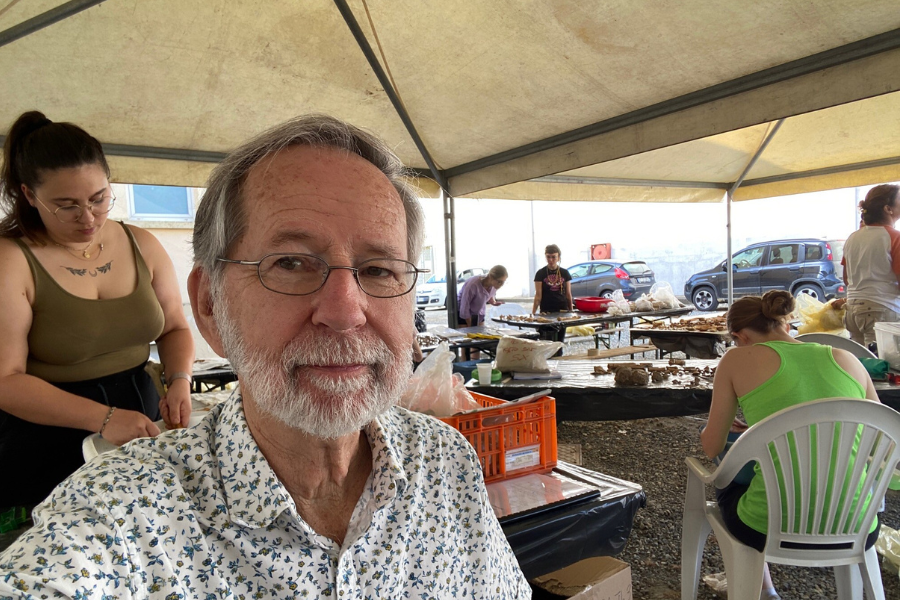
Dr. Robert Mann, JABSOM's renowned forensic anthropologist, has examined over 15,000 ancient and modern human skeletons throughout his career. This summer, he was invited to examine remains from a newly discovered area in ancient Pompeii, marking one of the most fascinating cases of his illustrious career.
Dr. Mann visits Italy annually to teach at the LABANOF Summer Bone Camp in Pontestura, associated with the State University of Milan. This year, he taught 36 students, including medical doctors, archaeologists, and biologists. On this trip, he was asked to visit Pompeii, a city frozen in time after being buried under feet of volcanic ash after the eruption of Mount Vesuvius in 79 AD.
"The volcanic eruption presents a unique situation and a challenge as the remains encased in volcanic ash are nearly 2,000 years old and can be extremely fragile to excavate and examine," Dr. Mann said.
The professor of Anatomy and Pathology at JABSOM worked alongside an incredible team of highly experienced archaeologists at the Pompeii site.
"I can't really speak about the Pompeii remains as the examination and excavation are underway as we speak. I can say, however, that my trip to ancient Pompeii was perhaps the most interesting and exciting site in my career," Dr. Mann said. "It was an honor and privilege to visit the site. I hope to return there again next year to assist however I can."
Before and after teaching at the bone camp and viewing the remains in Pompeii, Dr. Mann examined remains, gave talks, and taught forensic anthropology workshops in Thailand, Scotland, and Germany.
"I examined a new osteological collection in Bangkok and the skeleton of a prisoner from the early 1800s who was guillotined in Germany," Dr. Mann said. I'm going to Thailand to teach a 3-day forensic anthropology workshop on skeletal trauma in Chiang Mai. As always, I see and learn something new every year. Forensic anthropology never ceases to amaze me!
View photos from Dr. Mann’s global journey here:
